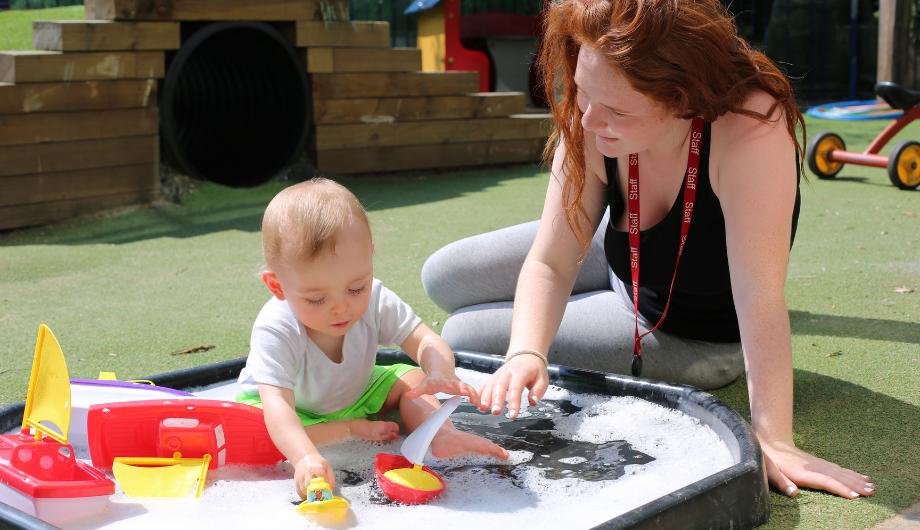
The impact of the mobile phone
It is Good to Talk! The signs of things going wrong in society are usually first evident in small children. The widespread dependence on Smartphones is…
October 12th 2015
”Early childhood development is the compelling economic social and moral issue of our time. It helps provide children with the opportunity they deserve to develop their natural abilities. It is also the most effective way to build a workforce and customer base we need. Investing in young children’s healthy development is a financial and social imperative for any country.’John Pepper, former Chair and CEO of Proctor and Gamble, CEO Task Force on Early Childhood Cited in Watson,S, Frank,D, Krumpos,K Business Leaders Actions To Support Early Childhood. Paper for Ready Nation 2015
Business leaders from every country have similar concerns – recruiting and retaining the best employees able to create a thriving and innovative workplace which continually meets the needs of customers in a challenging market space. One way to recruit and retain the best staff is to provide a family friendly environment and help staff access good childcare. The first step is to make childcare part of the business infrastructure.
Employees with small children are likely to be more motivated and engaged if their children are in a happy secure nursery. This is not just about helping the 60% of women returning to work after having a child but about supporting both parents to work more easily if they have good reliable and secure childcare. The numbers are not small; there are 4 million children aged 0 to 5 in England and 1 million of those children (aged 0 to 5) attend nurseries.
A recent Joseph Rowntree report asked low paid workers what they felt would improve their lives. The findings were clear; low paid workers think support for childcare is one of the most important things that could improve their lives as well as paid sick leave, paid travel time and paying the Living Wage.
Business leaders also have a vested interest in fostering an environment that helps young children become the future employees. Why? UNICEF UK asks that businesses bring the voices of children alive so that a company can understand how they affect their lives through wages, working hours and maternity leave offered to working parents of children.
When businesses understand the importance of early years for the long term benefit of children and society they are better able to advocate for those children and take action to create conditions that will help young children thrive, fulfil their potential and become productive adults because overwhelming evidence shows that children who have a very good start are better prepared for school and life. It’s a sensible long term business strategy.
‘Before she ever studies a software manual the 3 year old future programmer must build a foundation for learning how to read. the future pilot must begin to think critically and understand how to solve problems. These skills are built beginning in the earliest years of life.’
Roy Bostock : Vice Chairman Delta Airlines
For example, we know that the gap between the rich and the poor starts opening up at 22 months and the gap becomes harder to close as they get older (Fenstein). We know that literacy and language are key to a child’s long term success, yet by three the child from a professional family will have heard 3million more words than their poorer peer. We know that self regulation and deferral of gratification is one of the key indicators of children’s long term success. We know (from Heckman) what the consequences are should this go wrong.
Here are some statistics:
In addition, we are facing an obesity crisis among small children with one in four children arriving at Primary School obese. The consequences are enormous both immediately and in the long term. The UK Gov Chief Scientific Advisor, Sir David King, warns that the cost of obesity will hit £49billion by 2050 which will cost everyone an average of £1200 in taxes to fund the health costs. (Government Office for Science Report 2007 on Tackling Obesity)
Good nutritional and physical education are critical to helping us grow the future generation. These children need to be able to contribute and engage with society when they are older and do not need to be damaged by a diet and lifestyle that leads to obesity, ill health, asthma, diabetes and poor mental health. Children can start to learn about healthy choices in the nursery with their parents.
And if you don’t believe me, the September 2015 Summit on the Sustainable Development Goals agreed that businesses have a crucial role to play in raising awareness of the ideas of children ranging from children’s rights, ending abuse, proper health and safety processes across businesses and supply chains, exploitation, trafficking and all forms of violence against children, to achieve full and productive employment and decent work for all.
UN Guiding Principles on Business and Human Rights were unanimously endorsed by the UN Human Rights Council and are now acknowledged as the authoritative normative framework for states and businesses in managing the potential or actual negative impacts on people arising from business activities.
“States must set a clear vision for connecting the increasing role of the private sector and businesses in development with accountability and agreed standards for business practices aligned with human rights”
Margaret Jungk, the Chair of the UN Working Group on Business & Human Rights
So, if this does not convince you, please come to the Margaret Horn Debate which is the annual debate organised by LEYF during Global Enterprise week.
Currently we have a really exciting line up of attendees and panel guests which include:
Sajid Javid MP Secretary of State for Business: will open it with a very short speech about the importance of connecting business with childcare
Eleanor Mills: Editor of the Sunday Times will Chair the event
Michael Gartska: from Bain will welcome everyone to the event and introduce the evening plan.
The Panel
Rosaleen Blair from Alexander Mann (Invited) Senior member of Danone soon to confirm (an example of a family friendly business)
Adele Blakebrough who is CEO of Social Business Trust (Permira/Bain/EY/British Gas/ Thomson Reuters/Clifford Chance )
Sara Watson – CEO of ReadyNation (USA)
(One or two others TBC)
The format will be fairly conversational and attendees from the early years sector, social enterprises, charities, businesses and local authorities are very welcome to join us.
LEYF will also be hosting an event on 27th October, ‘Aspiring and Inspiring Leaders.’ Please join us for my latest book launch ‘Successful Leadership in the Early Years – Making a Difference’ and an information session at our central office about LEYF’s apprising leadership course.

It is Good to Talk! The signs of things going wrong in society are usually first evident in small children. The widespread dependence on Smartphones is…

Talking Early Years – In Conversation with Dr Ger Graus The power of play is recognised within the Early Years sector as essential to children’s development. Playing is…

How Early Years staff can help children cope with imprisonment of a loved one In my life many of my connections have been made through serendipity. In this case…